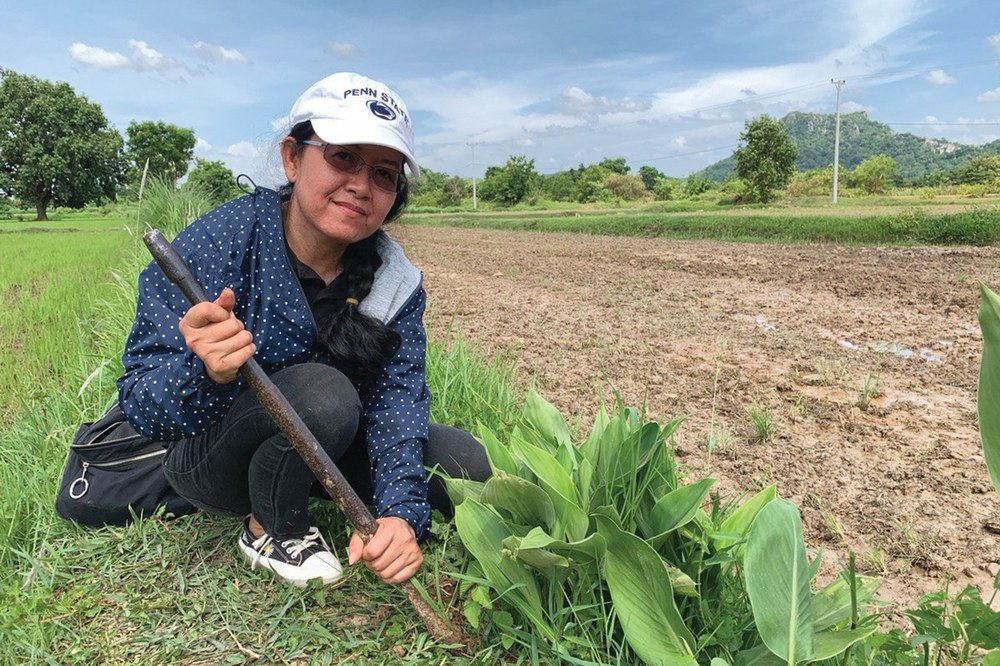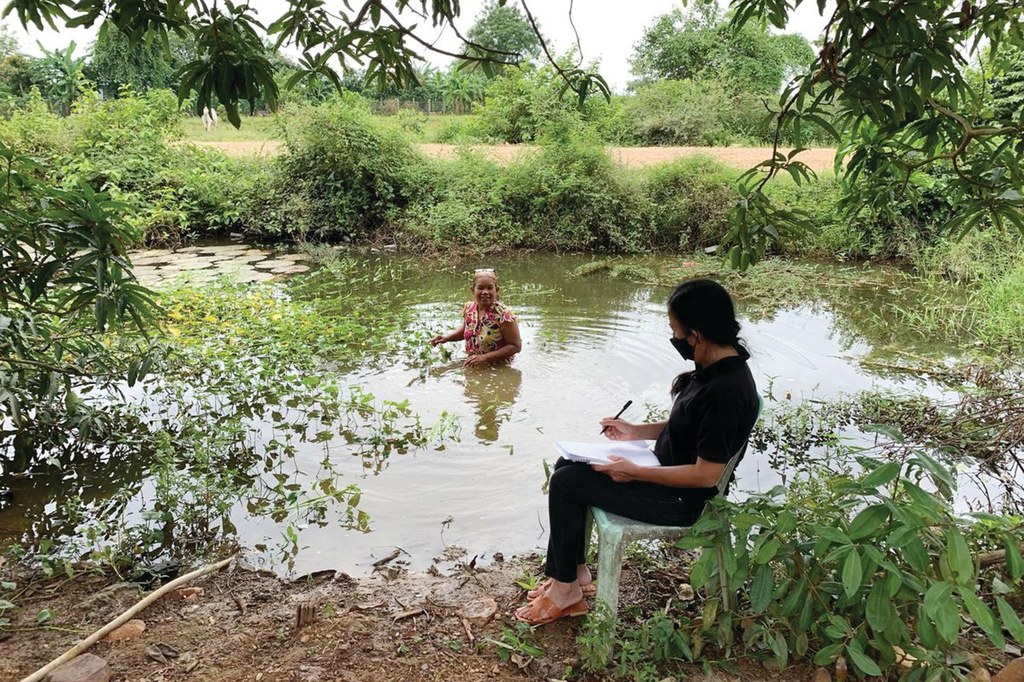Posted: April 3, 2024
Research explores intersection of gender with underutilized wild plants to combat food insecurity in Southeast Asia

Photo credit: Sovanneary Huot
Sovanneary Huot is passionate about plants. A doctoral candidate in rural sociology in the College of Agricultural Sciences, Huot (below) studies how underutilized native plants can help fight food insecurity, hoping to gather knowledge about these plants to help people in need. But even before tackling this project, Huot was inspired by another personal passion: improving lives in rural communities.
Born in Cambodia, Huot spent the early part of her career as a consultant on projects aimed at improving living standards in rural areas of the country, serving as a specialist in community development, gender, and monitoring and evaluation.
"Despite the occasional exhaustion, I found immense fulfillment in witnessing the positive changes in the living standards of our target populations," Huot said. "These experiences deeply connected me to rural communities, making it challenging for me to step away."
Still, she felt a calling to further her knowledge and skills. Around the same time, she came across an opportunity to pursue graduate studies in rural sociology at Penn State.
"The program perfectly aligned with my passion for analyzing the social, economic and cultural aspects of rural communities and agriculture with an emphasis on gender, especially in the context of women's empowerment," she said.
Without hesitation, Huot applied for the program. She completed her master's degree in rural sociology in 2020 and is a doctoral candidate in the same discipline, with areas of expertise encompassing rural sociology, women's and gender studies, international agriculture, community development, sustainable agriculture and food systems, and project evaluation.
For her dissertation, Huot decided to focus on how people in Cambodia use plants found in the wild to boost their nutrition and fight food insecurity, and how gender affects these practices.
According to the United Nations Food and Agriculture Organization, 45% of Cambodians live with food insecurity. But Huot said there's an underused and little-studied source of nutrition hidden in the mountains and fields of the country: wild, indigenous food plants.
Huot said that while these plants can serve as a source of food, nutrition, medicine and fuel, among other uses, not everyone is familiar with them.
"Wild food plants are integral to food systems in rural Cambodia, where women are often key contributors to finding sources of nutritious food for their families to stave off food insecurity," Huot said. "Yet existing efforts to comprehend and disseminate the advantages of wild food plants have been limited, with the intersection of gender and these plants also receiving insufficient attention."
To research these dynamics, Huot traveled to Cambodia to interview smallholder farmers, local authorities and other key informants to learn more about how they use wild food plants. She also led students from the National University of Battambang into the mountains to collect these plants to start wild gardens at the university and in communities.

Photo credit: Sovanneary Huot
Using some of the knowledge she gathered, Huot developed a cookbook to provide a written record of some of these plants, including their nutritional values and recipes for how to cook with them.
The cookbook details 11 recipes — including soups, salads, drinks and desserts — and features nutritional information on 24 wild food plants. These plants, such as climbing wattle and aquatic morning glory leaves, are high in vitamins and minerals that Cambodians otherwise might be missing in their diets.
Rick Bates, professor of horticulture, said Huot's work has resulted in a better understanding of how women manage and maintain this important food system and livelihood strategy.
"This research further documents and characterizes the rich diversity of highly nutritious, medicinal and economically useful species, which are often an important component of rural smallholder farms," Bates said. "Many of her findings could be used to strengthen the resiliency of small farms far beyond Southeast Asia."
Looking back on her academic journey and professional growth, Huot said she's been especially supported by the College of Agricultural Sciences. Beyond rigorous coursework, she's been able to enhance her critical thinking and analytical skills and hone her written and speaking communication skills.
She's also expanded her expertise and academic portfolio by publishing articles in high-caliber, peer-reviewed journals, including "Barriers of Women in Acquiring Leadership Positions in Agricultural Cooperatives: The Case of Cambodia" in Rural Sociology, for which she was the lead author.
Through it all, Huot said she's forged vital connections with mentors and peers that have deeply enriched her experience and development. Leif Jensen, distinguished professor of rural sociology and Huot's adviser, added, "In return, the unique experiences that students like Sovanneary bring make Penn State a much better place."
— Katie Bohn
Features
Breaking the Silence on Farm Stress
Farming has always been a demanding profession, but today's farmers face unprecedented pressures that can severely impact their mental health.
Biting Back
Research Targets Vector-Borne Diseases to Save Lives
Leading Forward
Ott brings deep connection to role of dean.


